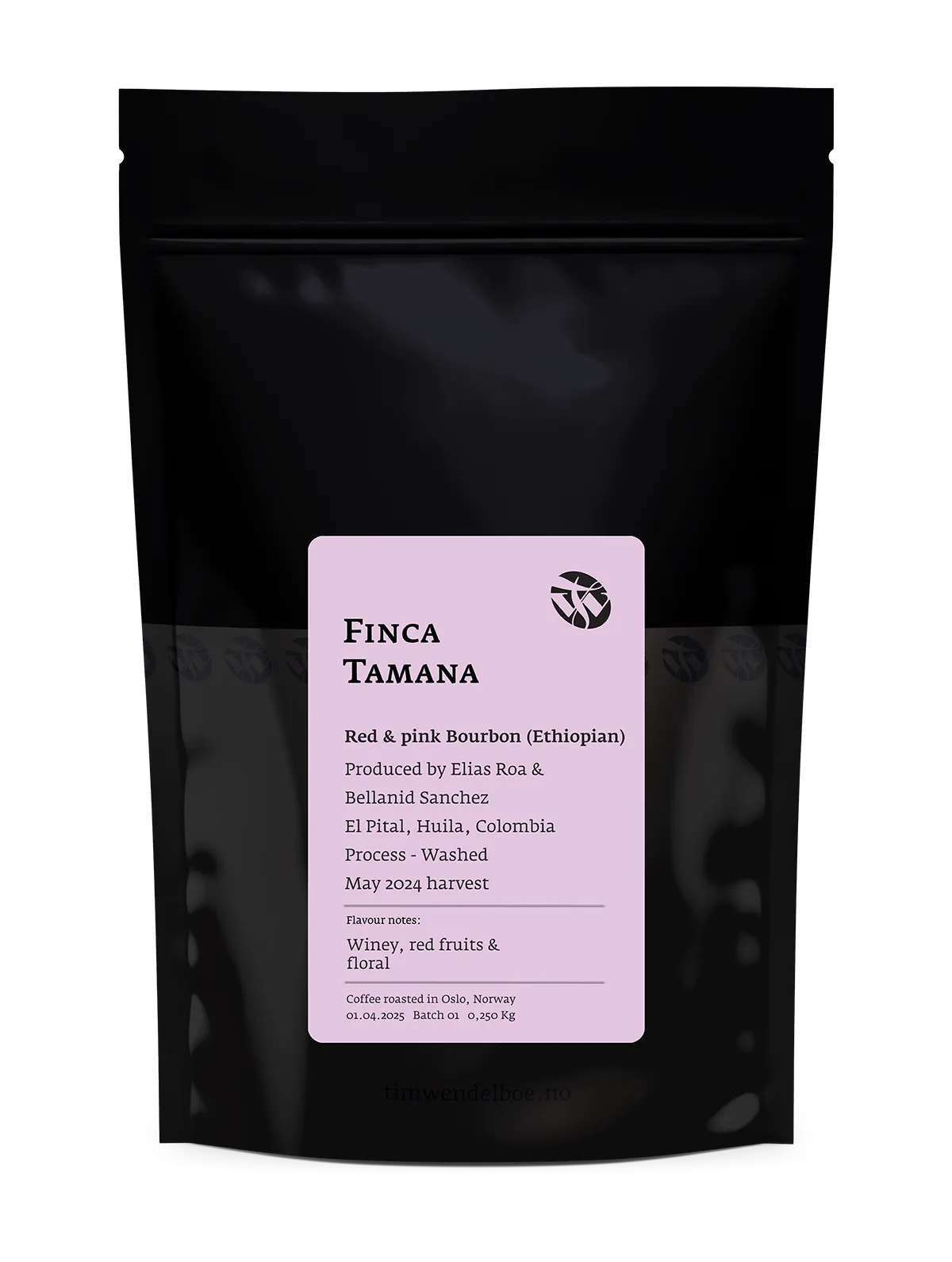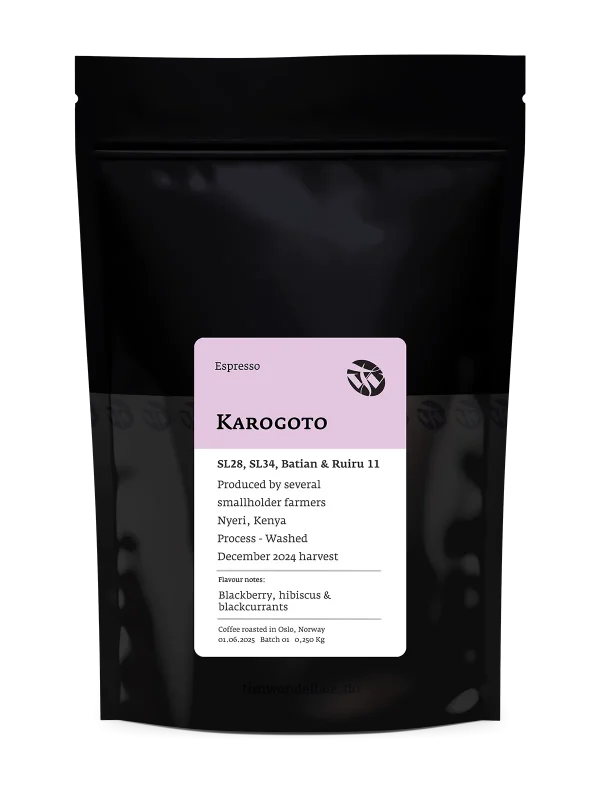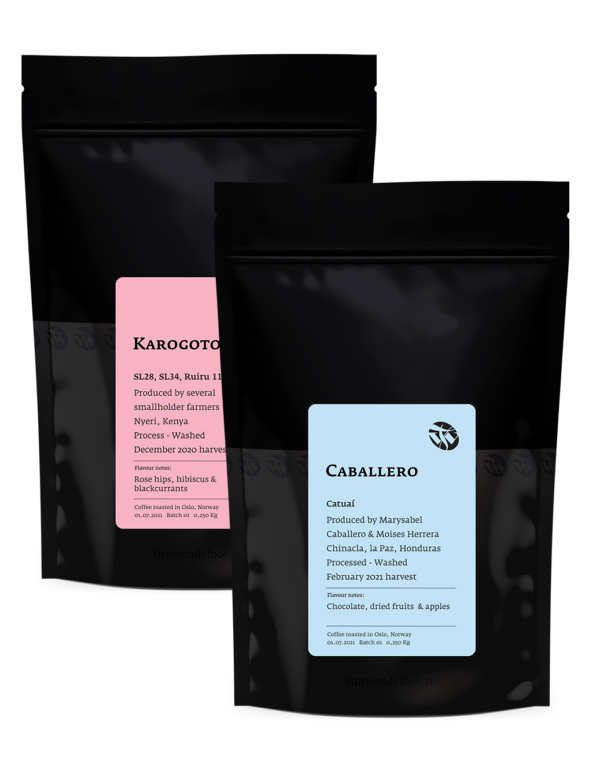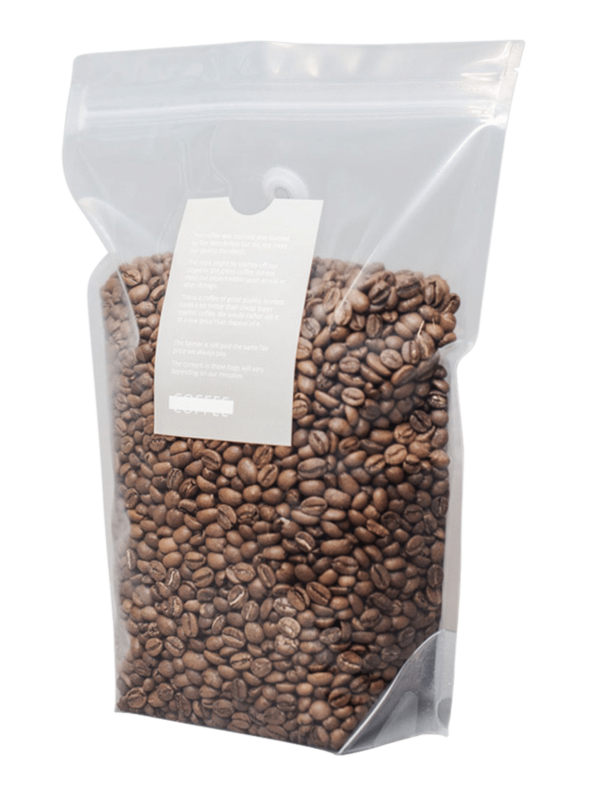| Cultivar | Red & pink Bourbon (Ethiopian) |
|---|---|
| Flavour Notes | Winey, red fruits & floral |
| Producer | Elias Roa & Bellanid Sanchez |
| Country | Colombia |
| Region | El Pital, Huila |
| Process | Washed |
| Harvest | May 2024 |
| Roast Profile | Light Roast |
| Contents | Whole Coffee Beans |
| Bag Size | 250g |
Finca Tamana Bourbon
kr239.00
These Bourbon & Ethiopian Pink Bourbon cultivars are among the best coffees currently being produced at Finca Tamana. As with all coffees we buy from Elias, this Bourbon is super clean and sweet with a delicate fruity and subtle floral profile.
Out of stock
Additional information
Tim's Notes
We planted these seeds of red Bourbon together with Bellanid and Elias in June 2014 and the trees were planted in a small hill at Finca Tamana in August 2015. At the same time Elias had gotten a handfull of seeds from a neighbour of some pink Bourbon (which actually has Ethiopian genetics). The difference is the red and pink colour of the coffee cherries when they are ripe but they also taste slightly different in the cup where the pink one is slightly more floral and the red one is slightly more fruity.
I am very happy that so far it is one of the best coffees we have tasted from Tamana. In fact Bourbon are among my all time favourite coffee cultivars but they need to be grown in good conditions to taste great. Fortunately Tamana seems to be a place where Elias and Bellanid can produce really tasty Bourbon coffees and I have encouraged them to plant more of it so that we can buy more of this delicious and juicy coffee in the future.
I am very happy that so far it is one of the best coffees we have tasted from Tamana. In fact Bourbon are among my all time favourite coffee cultivars but they need to be grown in good conditions to taste great. Fortunately Tamana seems to be a place where Elias and Bellanid can produce really tasty Bourbon coffees and I have encouraged them to plant more of it so that we can buy more of this delicious and juicy coffee in the future.
Cultivar
Bourbon is one of the most genetically important C. arabica cultivars in the world as many newer cultivars like Caturra, Mundo Novo, Villa Sarchi and Pacas descend from Bourbon. It was introduced from Reunion Island (former Bourbon Island) to Brazil around 1860 and quickly spread all over Central- and South-America. Bourbon is a tall plant with low yields but has potential to produce very high quality coffee. Unfortunately it is susceptible to leaf rust which is part of the reason why most Bourbon trees in Colombia and other countries have been replaced with the Bourbon dwarf mutation Caturra and later with resistant hybrid cultivars like Castillo and Variedad Colombia.
Process
Picking and sorting
Depupling, fermenting & washing
Drying
- The coffee is selectively hand picked by hired pickers under supervision of Elias. Cherries are hand-sorted before they are processed to make sure only ripe cherries are processed together.
Depupling, fermenting & washing
- The coffee cherries are stored in the cherry hopper in open air over night before the coffee is de-pulped in the morning. After de-pulping, the parchment coffee with the mucilage on is fermented for 24 hours in clean stainless steel tanks. The fermentation is stopped when the mucilage is easy to clean off and before the coffee flavour is influenced by negative fermentation flavours. The coffee is then washed in clean water by using an eco-mill which is a mechanical mucilage remover. The eco-mill reduces water waste from the average 50-100 litres of water per kilo of coffee with traditional washing methods to only 0,5 – 1 litre per kilo. After washing the coffees are soaked for 24 hours in clean water in tiled cement tanks. All floaters (beans with low density) are removed during the washing and soaking process.
Drying
- After the soaking stage the clean parchment coffee is dried in parabolic dryers and drying beds covered with shade nets to prevent the beans from over heating. The coffees are raked throughout the day to ensure even drying. Drying normally takes from 20 to 30 days and once the moisture content is below 11% it gets packed and stored in air tight grain pro bags. All our coffees from Finca Tamana are vacuum packed before it is shipped to Norway.
Shipping
For our Norwegian customers, we offer three shipping options:
- Pakke i Postkassen - With Pakke i Postkassen, tracking is provided, and delivery is estimated within 2-3 business days.
- Pakke til hentested - The parcel can be collected from a Post in Store, Post Office, parcel locker, or parcel box. This option includes tracking, with delivery expected within 1-5 business days.
- Norwegian Post, No Tracking (Brevpost) - This option does not offer tracking. Delivery is estimated within 2-5 business days.
How To Brew
Filter
- We strongly recommend using the correct measurements and brewing techniques when you brew our coffees. Use a digital scale both to measure water and coffee in order to get consistent results, and we recommend using between 60 to 70 grams of coffee per litre (1000g) of water, depending on the brewing method, water quality and coffee used.
- We strongly recommend using VST filter baskets. Both the 18g, 20g and the 22g basket is great for our coffee. The VST filters makes it a lot easier to extract the espresso properly which gives a lot more sweetness in the cup. They are also more or less identical to each other which makes it easy to be more consistent when brewing on several groups at the same time. You can buy the filters on our webshop, just make sure they fit your machine (ours fits all La Marzocco machines and machines with 58mm filter baskets). With the VST 18g filter basket, we recommend the following brewing parameters: 18-19g freshly-ground coffee, 25-35s brewing time, 35-38g of final brew liquid in the cup, 93°C-94°C brew water temperature.
Finca Tamana
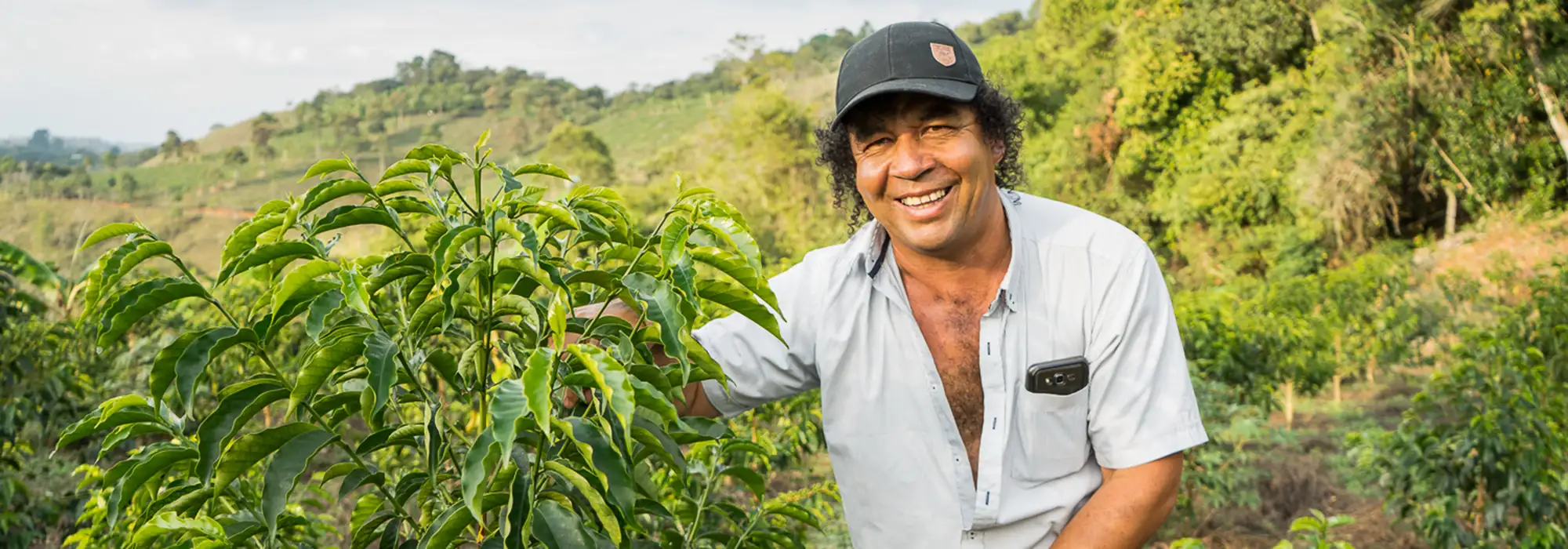
We started working with Elias Roa in 2012 and since then we have been working hard, every harvest, to improve the infrastructure at the farm as well as farming and processing practices. I first met Elias back in 2007 when I was traveling around Colombia with my friend and coffee exporter mr. Alejandro Renjifo. The aim of the trip was to find delicious coffees and potential farmers that I could work with to make sure we got a steady supply of tasty coffees from Colombia. While passing through the state of Huila I visited a small group of farmers in Acevedo that was lead by Elias. I remember we drank hot chocolate (!) and ate bread and cheese at his house and Elias gave me an impression of being a passionate and hard working farmer. Later that year I received a few samples from him but unfortunately his coffee was not meeting my quality requirements so nothing really came out of it.
Learn More About Finca Tamana
Transparency
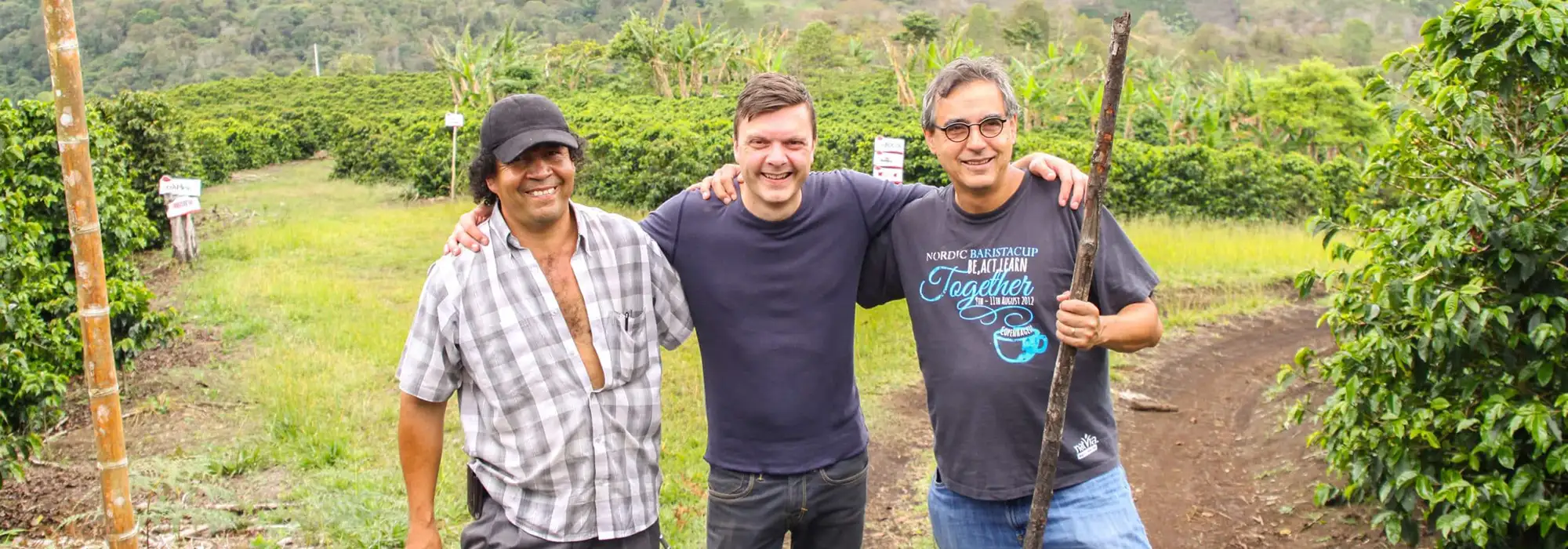
We buy coffee directly from Elias Roa, the farmer. Fairfield Trading, the exporter, provides milling and logistical service and the coffee is imported by ourselves directly to Norway.
Learn More About Transparency

